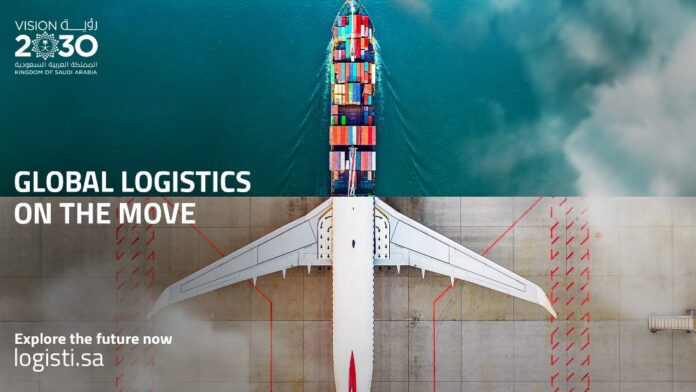The Kingdom has announced the launch of 59 logistics zones by 2030
In line with the Vision 2030 objective of transforming the Kingdom into a leading industrial powerhouse and global logistics hub, the Saudi Arabian Ministry of Transport & Logistics Services (MOTLS) has laid out an ambitious strategy that aims to develop the Kingdom’s transport and logistics sectors and address the increasing global demand for logistics services.
Ever since, the sector has witnessed unprecedented growth and progress, making its mark on the global logistics industry, a direct outcome of the continuous efforts by MOTLS. In the recently released Logistics Performance Index 2023 (LPI) recently published by the World Bank, Saudi Arabia made significant progress, moving up 17 ranks to achieve 38th position, from 55th in 2018.
To bolster the Kingdom’s efforts in this direction, HRH Crown Prince Mohammed Bin Salman has launched comprehensive programmes focused on different aspects of the sector. The National Transport and Logistics Strategy (NTLS) was launched in 2021 with the aim to strengthen human and technical capabilities in the transport and logistics sector in the Kingdom.
NIDLP
Earlier in 2019, the National Industrial Development and Logistics Programme (NIDLP) was launched to build the country’s industrial and logistical capabilities and position it as a global leader in the industry.
The programmes aspire to position the Kingdom as a global logistics hub. With a unique geographical location, connecting three continents: Europe, Asia, and Africa, the country is in an advantageous position to become the gateway facilitating easy trade and movement of goods across continents. Located on the Asia-Europe trade route, the country already hosts 12% of the global container trade passes annually.
Fast track
Saudi Arabia has been on the fast track to shift its economy away from oil and build a more diverse and holistic economic ecosystem. Currently, the logistics sector contributes 6% of the KSA GDP and is projected to contribute 10% by 2030, that is, around SAR 20.1bn. By 2030 it is expected to reach SAR 57.4bn
Boosting its cargo capacity and bolstering supply chains further, the Kingdom announced the launch of 59 logistics zones by 2030, 21 of which are already operational. The country also inaugurated its first Special Integrated Logistics Zone at King Khalid International Airport, Riyadh.
The measures are part of the infrastructure development strategy and aim to fuel business growth, attract investment, and increase the sector’s non-oil revenue to about 45 billion riyals a year by 2030.
Vision 2030 is the roadmap to building a globalized country with sustainable progress. Transport & logistics are the backbone of any economy, and our aim is to develop the sector, build connectivity and enhance our global competitiveness as a country. We are putting all our weight into developing internal and external supply chains and streamlining processes to the best international standards to provide world-class infrastructure and services. Our focus is on opening Saudi to the world with a multitude of opportunities.
In October 2022, HRH The Crown Prince also launched the Global Supply Chain Resilience Initiative (GSCRI) to attract local and international investments in the supply chain sector. Aiming to raise SAR 40bn (US$10.64bn) in its first two years, the initiative has set SAR 10bn in financial and non-financial incentives for investors.
Pushing toward a fast-paced transformation, the Kingdom has earmarked milestones for the rail, road, maritime, and aviation sectors. The largest and most populous GCC nation, the Kingdom also aims to create over two hundred thousand jobs in the sector by 2030.







